The APS confers a range of awards and prizes each year to honour outstanding achievements in psychology. The recipients of the 2021 APS awards are profiled below.
Award for Excellent PhD Thesis in Psychology
Award type: Showcase
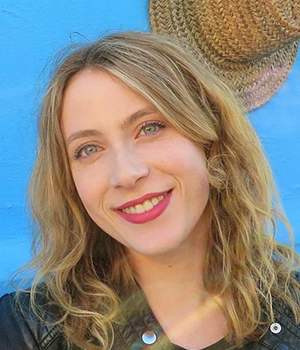 Winner: Dr Rachel Menzies
Winner: Dr Rachel Menzies
Dr Rachel Menzies is a clinical psychologist and postdoctoral research fellow at the University of Sydney. In 2015, Rachel won the Dick Thompson Thesis Prize for her Honours research, which explored the role of death anxiety in Obsessive-Compulsive Disorder. In 2016, Rachel was included in The Conversation Yearbook 2016, a collection of works by the top one percent of Australian academics and thinkers.
Rachel’s PhD research examined the transdiagnostic role of death anxiety in numerous mental health conditions. Her PhD also involved examining which treatments are most effective for ameliorating fears of death. This culminated in her developing the world’s first online CBT treatment for fears of death.
Rachel has delivered workshops on death anxiety across Australia. She is the author of numerous peer-reviewed academic titles and has been featured in mainstream media outlets such as The Conversation, The Guardian, The Sydney Morning Herald, and The Washington Post. Rachel is the co-editor of the book “Curing the Dread of Death: Theory, Research and Practice” and co-author of two books: “Tales From the Valley of Death: Reflections From Psychotherapy on the Fear of Death”, and “Mortals: How the Fear of Death Shaped Human Society”. She will be releasing two further books in 2022, both of which explore the crossroads of CBT and existential psychotherapy.
Early Career Research Award
Award type: Science
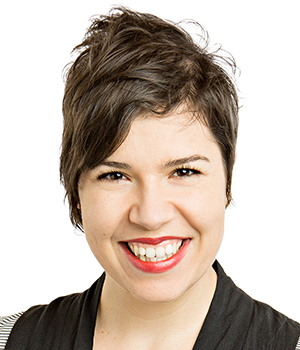 Winner: Dr Ursula Sansom-Daly
Winner: Dr Ursula Sansom-Daly
Dr Ursula Sansom-Daly is the Clinical Psychologist, Sydney Youth Cancer Service, and Deputy Head of the Behavioural Sciences Unit, UNSW Medicine & Health, the largest psychological research group in child/adolescent cancer in Australasia. Dr Sansom-Daly holds prestigious Early Career Fellowships from the National Health and Medical Research Council Australia, and Cancer Institute NSW, and has been a chief investigator on grants worth >$15.4million. Reflecting her dual clinical-research roles, Dr Sansom-Daly focuses on applying evidence-based psychological models and methods to address the mental health implications of cancer among adolescents and young adults with cancer. Her research spans the cancer trajectory, from diagnosis through to survivorship and end-of-life, and she has disseminated this through >65 peer-reviewed publications to date, as well as >45 media appearances. A strong emphasis of Dr Sansom-Daly’s research program is the development of resources and interventions to improve the cancer experience for patients, families, and health-professionals. Current studies include implementing videoconferencing-based mental health support into community settings for young cancer survivors, as well as co-designing advance care planning and communication support resources for AYAs whose cancer may not be curable. Dr Sansom-Daly was named one of the Australian Broadcasting Corporation (ABC)'s Top 5 scientists in 2017.
Distinguished Contribution to Psychological Education Award
Award type: Science
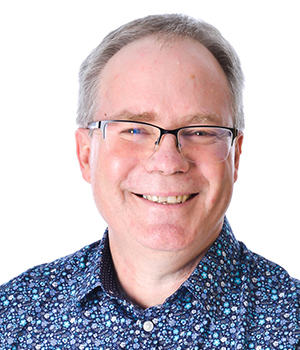 Winner: Professor Emeritus Tony Machin
Winner: Professor Emeritus Tony Machin
Professor Emeritus Tony Machin’s contribution to psychology education in Australia is extensive and includes developing psychology education programs, assisting with accreditation and quality assurance of psychology education programs, and advancing the status of psychology education in Australia. His record of education activities demonstrates significant contributions at international, national and institutional levels, displaying a commitment to quality education that benefits psychology students, psychology educators, the discipline and profession of psychology, as well as society more generally through the development of psychologically literate psychology graduates.
He is a former Head of the USQ School of Psychology and Counselling (2008-2018), Treasurer of the Heads of Departments and Schools of Psychology Association (HODSPA Inc) (2008-2018), and he also served on the APS Division of Psychological Research, Education and Training Forum from 2014-2019. He was instrumental in starting the Australian Psychology Learning and Teaching (AusPLAT) conference series under auspices of the APS Psychology Education (PsyEd) Interest Group. He created the AusPLAT Facebook site (https://www.facebook.com/Ausplat ).
He is strongly committed to developing students’ understanding and awareness of careers in psychological science and is a co-editor of the forthcoming Australian Handbook for Careers in Psychological Science (available early 2022) which will be open access and free.
Media Award for Public Engagement with Psychological Science
Award type: Science
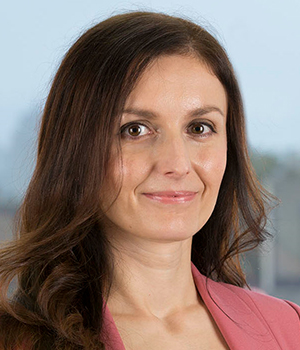 Winner: Professor Muireann Irish
Winner: Professor Muireann Irish
Professor Muireann Irish is a cognitive neuroscientist based at the Brain & Mind Centre and School of Psychology at the University of Sydney. Muireann’s research program explores how complex cognitive processes break down in neurodegenerative disorders, and the underlying neural bases of these impairments. Muireann demonstrates an exemplary commitment to communicating her findings to the public and fostering an early interest in science in young children. She believes that scientists have a responsibility to ensure that complex concepts are distilled in an accessible and engaging manner and has conducted >250 media and outreach activities including radio, tv, and print interviews, invited talks, and school visits.
The calibre of Muireann’s research and her science communication efforts have been recognised in prestigious awards from almost every major society in her field including a Young Tall Poppy Science Award from the Australian Institute of Policy and Science and the 2020 Australian Academy of Science Gottschalk Medal. Muireann has spoken at high-profile events including the Office of the Chief Scientist of NSW Seminar series, the World Science Festival, Vivid Sydney, and the 19th Biennale of Sydney. She is heavily committed to promoting positive role models for young girls and advocacy for women in STEM.
Distinguished Contribution to Psychological Science Award
Award type: Science
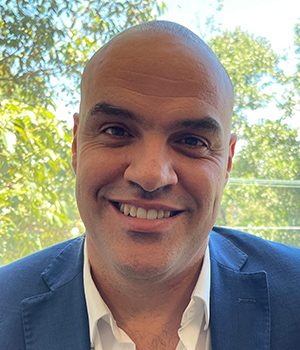 Winner: Professor Adam Gaustella
Winner: Professor Adam Gaustella
Professor Adam Guastella is a clinical psychologist and the Michael Crouch Chair in Child and Youth Mental Health at the Brain and Mind Centre, Children’s Hospital at Westmead, University of Sydney. He partners with researchers, clinicians, and the community so that children and families receive the best supports. He leads the Child Neurodevelopment and Mental Health Team for the University of Sydney and a national research consortium on transdiagnostic assessments and interventions for neurodevelopment, transforming research, assessment and referral pathways.
Since 2016, Professor Guastella has had 117 publications, 9355 citations and has attracted over $15M in funding. His work is rated by Clarivate for impact in the top 0.1% of researchers worldwide. His research applies knowledge from neuroscience to inform the theory and practice of clinical psychology. He is a world leader in autism research and has developed assessment and intervention programs to improve the mental health of autistic people. He conducts training programs for both mental health clinicians and workplaces to improve evidence-based, inclusive supports. He leads world-first research exploring oxytocin and social circuits in humans, and a range of novel clinical trials. This work has fundamentally shifted how we understand the neurobiology of social development in humans.
Outstanding Academic Mentor Award
Award type: Science
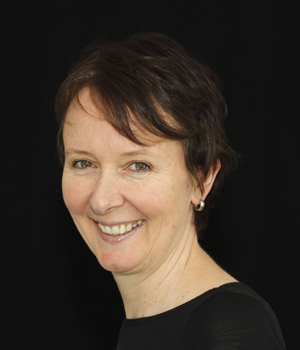 Winner: Professor Jane Pirkis
Winner: Professor Jane Pirkis
Professor Jane Pirkis is the Director of the Centre for Mental Health at the University of Melbourne. She has supervised 27 research higher degree students to successful completion and is currently supervising a further nine. She has also mentored numerous postdocs and early career researchers. Jane’s approach to mentoring influences, motivates and inspires people who are at the formative stage of their careers to excel. Many of the people she has mentored have gone on to achieve great things, both within and outside academia.
Jane has been instrumental in developing several formal mentoring programs, including most recently one for junior suicide prevention researchers who are part of the LIFEWAYS network. She tries to create opportunities for PhD students and early career researchers through her various roles, including in her capacity as Editor-in-Chief of Crisis. Jane is proud to have had the chance to help build the capacity of the next generation of mental health and suicide prevention researchers. She benefitted greatly herself from several excellent mentors in the early stages of her own career, and is now pleased to be able to have the opportunity to pay this back.
Early Career Teaching Award
Award type: Science
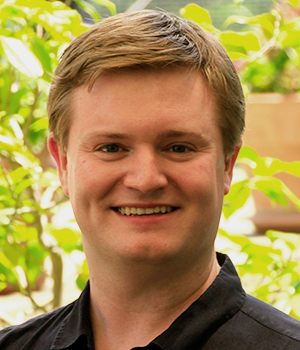 Winner: Dr Christopher Kilby
Winner: Dr Christopher Kilby
Dr Christopher Kilby is the Associate Head of School for Learning and Teaching at the Cairnmillar Institute. Chris coordinates the Graduate Diploma of Psychological Science and coordinates a Masters level research unit and a Graduate Diploma statistics unit. Chris supervises Honours and Master of Clinical Psychology research students. Previously, during his time at Macquarie University, Chris was also involved with teaching in Health Psychology, Personality, and Statistics, as well as working at Macquarie University’s Indigenous Tutoring Assistance Scheme). Chris has repeatedly received student evaluations highlighting his high level of approachability, passion, knowledge, and ability to convey complex ideas.
In addition to teaching commitments, Chris has completed a certificate in Course and Design Review and has been involved with the preparation of TEQSA and APAC accreditations for new and existing courses. Chris was involved in the construction of both a Bachelor of Psychology and Counselling course and the Graduate Diploma of Psychological Science at the Cairnmillar Institute. Chris is also a past representative for early career researchers in the Australasian Society of Behavioural Health and Medicine, a past staff facilitator of the LGBTQIA+ student group at the Cairnmillar Institute, and is regularly involved with mentoring students for external conference presentations.
President’s Award for Distinguished Contribution to Psychology in Australia
Award type: Showcase
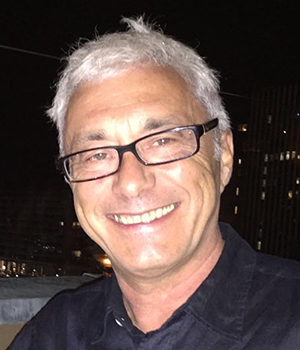 Winner: Professor Mark Dadds
Winner: Professor Mark Dadds
Mark Dadds is Professor of Psychology, a Principal Research Fellow of the NHMRC, Director of Growing Minds Australia, and Co-Director of the Child Behaviour Research Clinic. With colleagues, he has made an extraordinary contribution to the science/practice of child mental health through original, innovative research that he translated into intervention programs that are implemented worldwide. These include parenting interventions for child conduct disorders, the first family-based intervention for child anxiety, the first school-based prevention/early-intervention program for child anxiety, a range of programs for increasing father participation in child mental health, and recently, online programs for child mental health (AccessEI, Parentworks, FamilyMan), the first theory-driven intervention for children with callous-unemotional traits, and in 2019, the seminal paper on parental discipline, time-out, and child mental health for American Psychologist.
Rather than licencing his interventions and measures, he kept them open and free such that they are used around the world without copyright, e.g. the Griffith Empathy Measure has now been translated into 12 languages. In 2008 he founded the Child Behaviour Research Clinic which has directly treated over 1500 children and trained over 600 practitioners, solely using research funding. His innovative treatment for children with multiple comorbid conditions was the subject of a dedicated documentary commissioned by ABCTV, in which he presented live-to-camera treatment of 6 children referred for severe comorbid behavioural problems. He has received over $24M for translational research, has published over 280 research and clinical papers that have received over 33K citations, 14K since 2015. In 2021, he was funded to develop Growing Minds Australia, Australia’s first Clinical Trials Network in child and youth mental health.
APS Psychology Entrepreneur of the Year Award
Award type: Showcase
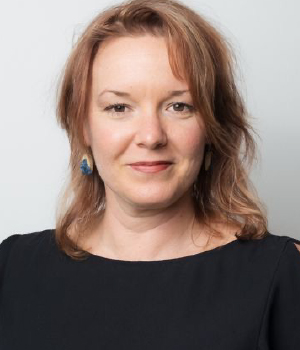 Winner: Kathleen Davey
Winner: Kathleen Davey
Kathleen Davey has worn many ‘hats’ over the past 20 years: Clinical Psychologist, Chief Operating Officer, Company Director, professional trainer, law student, and business owner to name a few. All are connected by her passion for empowering the lives of others, particularly the autistic community.
Whether leading the distribution of Secret Agent Society (SAS) for more than a decade; appearing before courts as an expert witness; building new regional child and family services, or consulting to complex organisations such as the Police force; Kathleen has never been shy of taking on a challenge or driving change for the better.
Kathleen's strategic vision has most recently been harnessed by SST, a subsidiary of the not-for-profit AutismCRC. Early in the pandemic, she spearheaded the 6-month transformation of the SAS Small Group Program into a sophisticated digital health system within a rapidly-changing environment to mitigate the critical risk, and embrace the innovation opportunity, presented to child services globally by COVID-19. Her determination, passion for co-design, and expertise in SAS and its market was foundational in delivering a solution that ensures its impact and viability empowers families long-term, revolutionizing group services through uniquely applying technology within clinical practice – all while maintaining the core evidence-based content and processes.
Significant Contribution to Rural and Remote Communities Award
Award type: Showcase
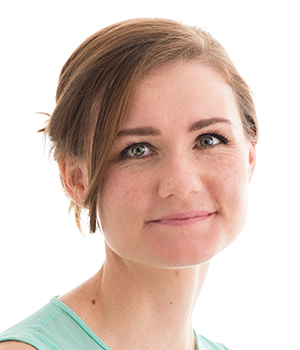 Winner: Dr Emily Berger
Winner: Dr Emily Berger
Dr Emily Berger is an Educational and Developmental Psychologist and Senior Lecturer in the School of Educational Psychology and Counselling in the Faculty of Education at Monash University. She also holds an Adjunct Senior Research Fellow position with the School of Rural Health, Monash University. Dr Berger's work centres on childhood and family adversity, stress and trauma. She has worked for 8 years with the School of Rural Health evaluating the impacts of a disaster on children and families in regional Victoria. She also works on projects with partners in regional and rural Victoria, New South Wales and Queensland to understand and address the wellbeing needs of children and families in these communities. This includes farming families and families exposed to drought and disasters, such as bushfires and floods.
Dr Berger is passionate about working with rural and regional communities and developing programs and strategies which add to the strengths of these people. She has published and presented widely on issues related to regional and rural mental health and wellbeing. Other examples of her work include an evaluation of the professional development needs of early career teachers working in regional and rural New South Wales and an evaluation of the wellbeing needs of teachers working across regional and rural areas of Australia. Dr Berger teaches in the Masters of Professional Psychology and Masters of Educational and Developmental Psychology courses at Monash University and seeks to educate her students about the experiences, needs and strengths of regional and rural families and the benefits of working in regional and rural areas.
APS Significant Contribution of Psychology in the Public Sector Award
Award type: Showcase
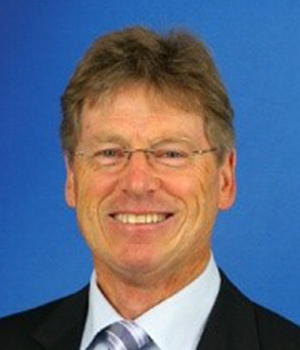 Winner: Jeffrey Bond OAM, FAPS, FCSEP
Winner: Jeffrey Bond OAM, FAPS, FCSEP
Jeffrey Bond has had a distinguished public service career spanning more than 35 years in education, elite sport and local government. His early career in education comprised 7 years in Victorian secondary schools and a further 8 years in the State College of Victoria – Rusden as a Lecturer in sport psychology and the psychology of coaching and teaching. In 1982 Jeffrey was appointed by the Australian Institute of Sport (a Federal government Statutory Authority) to the inaugural position of Head of Sport Psychology. He led and developed a team of sport psychologists over his 22 years in this position responsible to providing psychological support and performance enhancement services to large numbers of scholarship and professional athletes and coaches across the vast majority of Australia’s national, Commonwealth Games and Olympic teams. During this period at the AIS Jeffrey developed working relationships with the ADF and AFP in Canberra, and subsequently as a corporate business consultant provided performance and psychological wellbeing support to a range of international public service organisations in the UK, Japan and HongKong. Between 2012 and 2017 Jeffrey worked in local government as the coordinator of learning and development for over 350 staff.
APS Outstanding Accredited Supervisor Award
Award type: Showcase
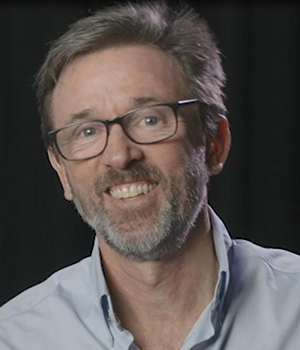 Winner: Mark Donovan
Winner: Mark Donovan
Mark is viewed as a leader in clinical supervision in Australia based on his extensive supervision, supervisor training, and academic work. Mark has worked as a registered psychologist for over 30 years and has provided clinical supervision for hundreds of provisional psychologists in Australia over the past 15 years while working at the University of Wollongong. Mark previously provided supervision and training at the University of East Anglia, UK. Mark has trained over a thousand registered psychologists in competency-based clinical supervision and was part of the team that created the first competency-based supervisor training for Australian Psychological Society in 2013.
Mark was also a foundation member of the team that developed the Clinical Psychology Placement Rating System (CMAT-CYPRS) which is used by over 24 psychology training institutions nationally and internationally (Gonsalvez et al., 2015). Further, Mark was instrumental in developing an online placement logbook tool that allows for accurate and timely recording of placement activities (Deane, Donovan, et al., 2021; Nicholson Perry, Donovan et al., 2017). Mark is highly regarded in terms of his expertise, knowledge, and commitment to clinical supervision. His integrity, genuine concern for others, warmth and good humour make him a popular and much-loved supervisor and colleague.